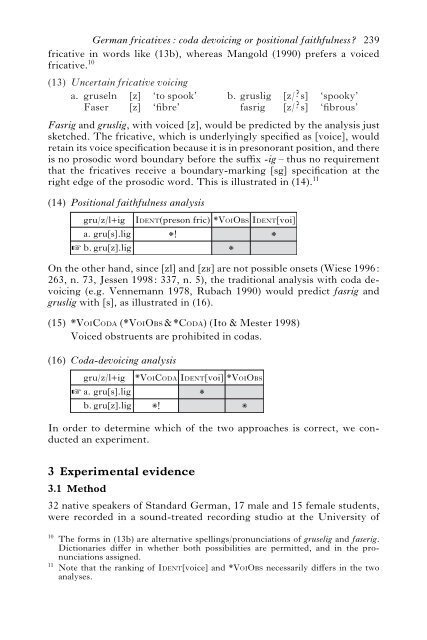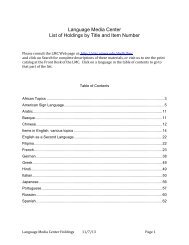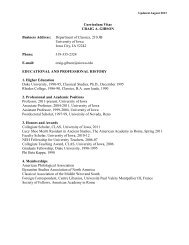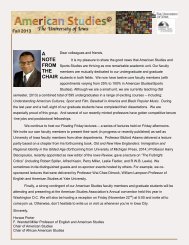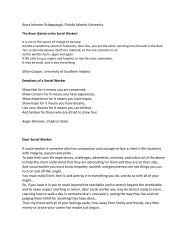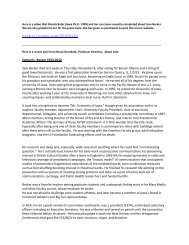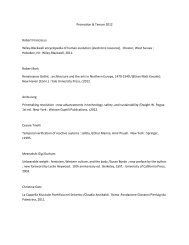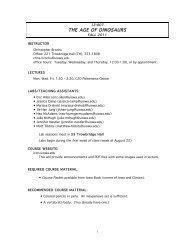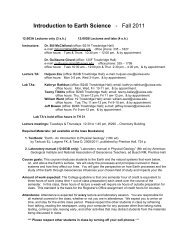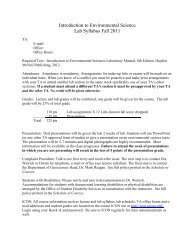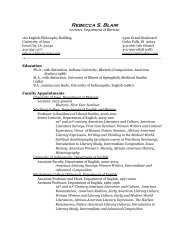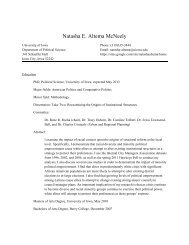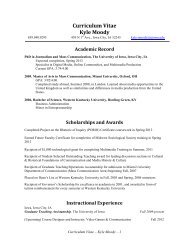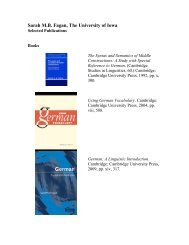German fricatives: coda devoicing or positional faithfulness?
German fricatives: coda devoicing or positional faithfulness?
German fricatives: coda devoicing or positional faithfulness?
You also want an ePaper? Increase the reach of your titles
YUMPU automatically turns print PDFs into web optimized ePapers that Google loves.
<strong>German</strong> <strong>fricatives</strong>: <strong>coda</strong> <strong>devoicing</strong> <strong>or</strong> <strong>positional</strong> <strong>faithfulness</strong>? 239<br />
fricative in w<strong>or</strong>ds like (13b), whereas Mangold (1990) prefers a voiced<br />
fricative.10<br />
(13)<br />
Uncertain fricative voicing<br />
a. gruseln<br />
Faser<br />
[z]<br />
[z]<br />
‘to spook’<br />
‘fibre’<br />
b. gruslig<br />
fasrig<br />
[z/?s]<br />
[z/?s]<br />
‘spooky’<br />
‘fibrous’<br />
Fasrig and gruslig, with voiced [z], would be predicted by the analysis just<br />
sketched. The fricative, which is underlyingly specified as [voice], would<br />
retain its voice specification because it is in preson<strong>or</strong>ant position, and there<br />
is no prosodic w<strong>or</strong>d boundary bef<strong>or</strong>e the suffix -ig – thus no requirement<br />
that the <strong>fricatives</strong> receive a boundary-marking [sg] specification at the<br />
right edge of the prosodic w<strong>or</strong>d. This is illustrated in (14).11<br />
(14) Positional <strong>faithfulness</strong> analysis<br />
gru/z/l+ig<br />
a. gru[s].lig<br />
b. gru[z].lig<br />
Ident(preson fric) *VoiObs<br />
*!<br />
*<br />
Ident[voi]<br />
*<br />
On the other hand, since [zl] and [zH] are not possible onsets (Wiese 1996:<br />
263, n. 73, Jessen 1998: 337, n. 5), the traditional analysis with <strong>coda</strong> <strong>devoicing</strong><br />
(e.g. Vennemann 1978, Rubach 1990) would predict fasrig and<br />
gruslig with [s], as illustrated in (16).<br />
(15)<br />
*VoiCoda (*VoiObs&*Coda) (Ito & Mester 1998)<br />
Voiced obstruents are prohibited in <strong>coda</strong>s.<br />
(16) Coda-<strong>devoicing</strong> analysis<br />
gru/z/l+ig<br />
a. gru[s].lig<br />
*VoiCoda Ident[voi] *VoiObs<br />
*<br />
b. gru[z].lig *!<br />
*<br />
In <strong>or</strong>der to determine which of the two approaches is c<strong>or</strong>rect, we conducted<br />
an experiment.<br />
3 Experimental evidence<br />
3.1 Method<br />
32 native speakers of Standard <strong>German</strong>, 17 male and 15 female students,<br />
were rec<strong>or</strong>ded in a sound-treated rec<strong>or</strong>ding studio at the University of<br />
10 The f<strong>or</strong>ms in (13b) are alternative spellings/pronunciations of gruselig and faserig.<br />
Dictionaries differ in whether both possibilities are permitted, and in the pronunciations<br />
assigned.<br />
11 Note that the ranking of IDENT[voice] and *VOIOBS necessarily differs in the two<br />
analyses.


